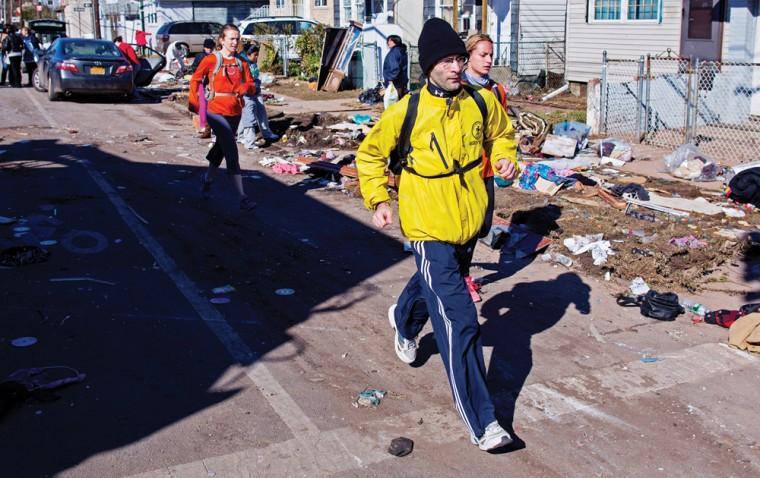Sunday I woke up in New York emotionally and physically hungover from the LSU loss the previous night.
I was in the Big Apple to support my dad and uncle who had trained months and dropped piles of cash to run in the New York City marathon. Little did we know on Thursday, when we arrived, that the marathon would soon be canceled and our collective moods dampened.
By Saturday I was ready to write New York off as a one-note city, and that note was “screw you.”
After Superstorm Sandy, New York City Mayor Michael Bloomberg faced mounted criticism for his decision to support the New York marathon when places like Staten Island were in need of supplies that citizens argued were being used for the marathon and could instead be routed to those affected by the storm.
On Friday, when I went with my family to pick up their race packets and to peruse shamelessly overpriced racing apparel and accessories, Twitter started buzzing with rumors that Bloomberg had canceled the race.
I waited, unsure if the rumors were true and unwilling to spoil the trip for my dad and uncle.
The race was indeed canceled, and we were all upset. My dad and uncle trained months to run the marathon. I had skipped school and the prospect of witnessing firsthand a victory against Alabama.
Needless to say, I was pissed.
Cancel the race on Sunday, when you realized the city was slightly unprepared for this storm. Cancel the marathon Tuesday, when you realized the race passes through areas devastated by the storm. But don’t cancel the race on Friday when runners had traveled from all over the world and shelled out thousands of dollars on plane tickets and hotel rooms that could instead be used to house those without power.
And while it was asserted throughout the news that the race wasn’t happening, an announcement was delayed for the hundreds of racers standing in line to pick up their numbers for the race.
I felt awful for the men and women who traveled to the city in hopes of fulfilling, in some cases, a lifelong dream.
It takes months of preparation to get in shape to run 26.2 miles. That type of training takes its toll on your body. So much so that after running, it is said you need months of rest before running another equally demanding race to give your body time to recover. Entry into the New York marathon isn’t even guaranteed — my uncle spent three years trying to get into the race.
It’s the atmosphere, the city, the crowd support that draws millions to the city to not only run but show their support for runners who devote so much of their time in preparation.
But on Sunday, my faith in the city was restored.
My uncle, my dad and I ventured to Central Park, where the marathon’s finish line was, to run a lap around the park. We were completely unprepared for what awaited us.
Runners flocked to the park to complete the marathon they were told was canceled. Crowds showed up to cheer on the runners, whose determination was unmarred by Bloomberg’s indecision.
Donations in the form of clothes and money were being accepted for Sandy’s victims.
It was everything that is great about the city. The ability of New York to rally behind itself showcases America’s greatest strength.
So while I was originally pessimistic about the storm that was being compared to Katrina, which is unfair to the residents of both cities, I left New York feeling inspired by what I had seen there despite the Tigers’ loss.





